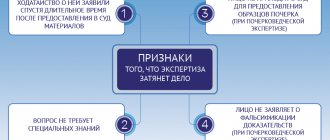An examination of the fact of death belongs to the group of forensic psychiatric studies and represents an analysis of a person’s condition immediately before death, as well as for some time before it, depending on the goals and objectives of the procedure being carried out. The examination is carried out posthumously and is ordered, as a rule, in the absence of signs of violent death. This is where another name for this study comes from – post-mortem examination. The study can be conducted to clarify the circumstances and causes of death, as well as to establish the mental state of the deceased in the period preceding death, if he committed any legally significant actions.
There are different points of view on the period of time during which the mental state of the deceased is established. Some forensic psychiatric examination methodologists believe that it is necessary to assess the condition of the deceased person at the time of death, while others believe that it is advisable to consider a certain period of time preceding suicide. The expert conducting the research chooses a methodology based on the tasks assigned to him and the specific circumstances of the case.
Most often, an examination of the fact of death is resorted to in cases of investigation of confirmed and suspected suicides. If the fact of suicide is not clearly established by the investigation, a study is ordered to clarify the circumstances of death and more accurately determine its cause. If the fact of suicide is obvious, then the examination is aimed at determining the state of the deceased for some time before committing suicide.
Suicide is one of the most common causes of death, as a result of which a forensic psychiatric examination of the death is an important means of studying the phenomenon of suicide and preparing preventive measures to prevent voluntary death.
The procedure for ordering an examination of the fact of death and the procedure for conducting it
An examination of the fact of death is carried out in relation to discovered corpses without visible traces of violent death, as well as in relation to the bodies of suicides. The exception is cases of death from diseases within the walls of medical treatment institutions. An examination of the fact of death is appointed by investigative authorities or by court decision. In addition, the research can be carried out at the initiative of relatives of the deceased person or other interested parties.
The specialist carrying out the examination of the fact of death familiarizes himself with the tasks assigned to him and the questions that require answers. Depending on their specifics, the research methodology is determined and the expert begins to work. During the analysis, the following expert activities are performed:
- Studying the testimony of witnesses in the case, relatives and friends of the deceased. Based on these readings, a judgment can be made about the condition of the deceased person.
- Examination of the deceased's paper and electronic documents, including letters, diaries, other documents and a suicide note, if any.
- Examination of the body of a deceased person in order to clarify the cause of death.
- A toxicological examination designed to determine the presence of narcotic and toxic substances, as well as alcohol, in the deceased person. The results of this analysis clarify the cause of death (for example, poisoning or drug overdose) or determine factors affecting the person’s mental state, such as alcohol or drug intoxication.
- Study of medical documents - outpatient records, extracts from medical institutions, etc. in order to determine the individual psychological characteristics of the deceased person. Particular attention is paid to the psychiatric history of the deceased - the history of visits to specialized specialists and hospitalizations, as well as taking medications that affect the psyche.
After conducting the expert activities, the specialist carrying out the examination of the fact of death answers the questions posed to him and formulates his professional opinion. Next, the specialist begins to draw up the main document - an expert report, which certainly includes a description of all the analyzes performed, copies of the documents studied, photo and video materials on the case, and so on. The expert report also includes answers to questions asked of the expert. The expert certifies the conclusion drawn up by him with his signature and is responsible for the information contained in it. The expert may also appear in court as a witness to give explanatory testimony regarding the work he has performed.
Reliability of the examination
The objectivity of a psychiatric procedure is unambiguous and completely objective only in the case when the object of research, i.e. a certain person is alive and physically able to contact a specialist. If this is not possible, and the person being examined has died, then an examination in absentia is carried out. The main circle of specialists involved in this field characterize such studies as purely subjective information that should be taken seriously if there is sufficient material for study.
In court, the reliability of the examination is not questioned; it can only be ordered again. In addition to the use of examination materials in absentia in court, the expert himself will necessarily be summoned to the stage of the judicial investigation to clarify the issued conclusion. In particular, the specialist will be asked to justify all aspects of the research conducted on the basis of generally accepted legal terminology. Medical evidence and official written explanations indicating the nature of the circumstances and the cause-and-effect relationship will be attached to the examination materials.
After justifying the conclusion provided by the expert, the judge will independently decide whether to include the materials in the official documented legal proceedings.
The main tasks of conducting an examination of the fact of death
The objectives of the examination of the fact of death are determined by the circumstances of the event, as well as the goals that the expert measures must achieve. The formulated objectives of the study are fixed in the contract for the examination or in the resolution on the conduct of the study. Depending on this document, the expert determines the technology and methodology of analysis.
The main tasks of the death examination include:
- Clarification of the causes of death of the deceased person. An examination of the fact of death often helps to clarify the true causes of death, as a result of which the case being investigated can be classified as a different offense. For example, an examination may reveal traces of violent death.
- Determination of the mental state of a deceased person shortly before death, as well as at the time of its occurrence. The mental state of the deceased is assessed from the point of view of his ability to realize what is happening, as well as to be critical of his actions and the actions of other people.
- Establishing emotional and other factors that could affect the deceased person’s ability to make decisions, as well as his level of awareness of the events taking place. Severe emotional shocks, as well as stress caused by tragic events, can have a significant impact on a person, as a result of which people who are not prone to such actions turn to suicide.
- Determination of the sanity (capacity) of the deceased person before death. Often, before committing suicide, a person takes certain actions that have legal force - for example, signing a purchase and sale agreement, donation, drawing up a will, and so on. In such cases, to confirm the legality of the transaction or, conversely, to establish its invalidity, they resort to assessing the legal capacity of the deceased at the time of committing certain actions.
- Establishing the actions of other persons who contributed to the suicide of the deceased person. This task is set to identify the fact of driving the deceased to suicide, which is a criminal offense. The impact on the deceased is most often studied in conjunction with his condition, since a person who is not aware of his actions can be subject to any influence from the outside.
Difficulty of conducting research
- The absence of a subject is the bias of data and written testimony on the basis of which an expert opinion will be drawn up.
- Superficial presentation – the provided medical documentation is often subjective, filled with general phrases that do not carry any semantic meaning. Lifetime medical reports contain only the result of the disease, and rarely indicate possible and reliable causes of their occurrence.
- Contradictions in medical documentation and testimony - in cases in which interested parties give deliberately false testimony that contradicts medical opinions and the testimony of officials.
- The underdevelopment of research methods and the imperfection of the judicial system are due to the lack of sufficient practice in these cases and difficulties in developing more specific research methods.
The basis for the conclusion is taken from the case materials and depends entirely on the depth of the investigations carried out and the number of witnesses provided.
The refusal of experts to conduct research may be considered by the court as a basis to recognize the deceased as legally competent and (or) to consider that the data provided is insufficient to make a reliable decision.
Necessary materials that guide experts
- Medical record of an outpatient from a local clinic . Honey. card from a psychiatric clinic (if available). The period in the immediate vicinity of the moment of a transaction or other legal action is considered especially valuable. Conclusions of other forensic psychiatric examinations, if any in the anamnesis.
- Personality characteristics, psychological status of the person under study, obtained as a result of a request from official sources. Precinct police station, from place of residence, place of work and training.
- Testimony from neighbors, people in direct contact with the deceased, relatives. Testimony of civil registry office employees, when challenging a marriage, testimony of notary service employees, when drawing up wills, deeds of donation and other legal actions.
Groups of information sources for giving an expert opinion
- Medical workers who maintain primary accounting documentation and the documentation itself.
- Officials having direct contact with the deceased.
- Witnesses.
- Case materials provided by investigative authorities.
What circumstances are established during the study?
The expert's opinion answers specific questions. First of all, the specialist determines:
- Psychological state of the subject before death.
- Is there any reason to believe that the negative state developed under pressure from a third party? In the case of suicide, such pressure implies violence, cruelty, humiliation, threats .
Additionally, the expert finds out:
- How often the subject was in a state of psychological or emotional stress.
- Was the subject in a state of passion?
During an examination in civil cases, the following is examined:
- Whether the deceased suffered from a mental disorder on a certain date. If the answer is positive, the degree of mental disorder is determined .
- Whether the deceased suffered from alcoholism or drug addiction. If the answer is yes, then could the disease cause a mental disorder?
- Can mental deviations be considered grounds for declaring a person incompetent?.
- Is there any reason to believe that the personality characteristics of the deceased could have influenced his behavior in a criminal situation (phobias, fears, exposure to stress, etc.)
Cases of appointment
A post-mortem examination is ordered by the court or investigative authorities to make decisions in civil and criminal cases. The research procedure has some similarities and significant differences.
For civil cases
Posthumous examination in civil cases is appointed for the purpose of challenging wills or other property transactions.
The purpose of an examination in civil cases is to establish the legal capacity and transaction capacity of the subject. According to Article 21 of the Civil Code of the Russian Federation, “Legal capacity is the ability of a citizen, through his actions, to acquire and exercise civil rights, to create civil responsibilities for himself and to fulfill them.
Transactional capacity is not a procedural concept, but implies the ability of a citizen to assess the significance of his own actions and manage them in a certain legal period.
The legal period is understood as the moment of concluding a transaction in relation to the property of the person being valued. Important ! During the procedure, the expert also evaluates the volitional factor (Articles 177-179 of the Civil Code of the Russian Federation) when conducting a transaction. The volitional factor means that the deceased citizen did not suffer from mental illness, was competent, but during the conclusion of the contested transaction was under psychological influence from third parties (threats, delusion, deception).
For criminal cases
When considering criminal cases, a post-mortem examination is necessary if there is uncertainty about the circumstances of the offense or if it is impossible to accurately qualify the actions of the defendant.
The study is assigned:
- when committing suicide;
- if the perpetrator of the crime died before the trial; when reconsidering the sentence of a convicted person who died before the trial;
- when the victim informed the investigator of new circumstances in the case, but did not have time to testify in court;
- when using self-defense measures that led to the death of a person.
Regardless of the availability of data on the condition of the deceased in the case, the materials are analyzed anew. During the re-examination, the information obtained during the initial examination is not examined and is not taken into account.
Know how the examination is carried out. The court has the right to refuse the request for her appointment. Applicants can order an independent examination, but its results are heard and do not influence the court’s decision.
Who can I request a psychological and psychiatric examination of a child or adult from?
Forensic psychological examinations of witnesses, defendants, children and other persons are usually performed on an outpatient basis. The doctor studies the patient, collects as much information as possible and forms an opinion based on it.
But when performing research, it is important to take into account all the nuances. Malingering is often noted during psychiatric and psychological examinations. Therefore, it is so important to contact a professional who can collect all the parameters of interest and form an objective conclusion.
Our company is always ready to offer its services. The company has significant experience in this area. Advanced techniques are used, eliminating the possibility of distortion.
Advantages:
- Optimal prices for services.
- Wide range of proposed studies.
- The company works with various orders.
- The possibility of defects is excluded.
- Short lead times, optimized procedure.
- Extensive experience of specialists.
- Employees work to improve their knowledge.
- An appropriate conclusion is drawn up in accordance with all the rules.
- Our company adheres to the principle of independence.
- Special techniques are used.
- The employees will cope with the task at the highest level.
Conducting an examination of testators
Most often, such a check is carried out in relation to testators if heirs who are not indicated in the document want to challenge the contents of the will, proving that the deceased was incompetent.
If during the research the fact of the testator’s incapacity is proven, his civil transactions and their consequences are canceled. Therefore, the will is also considered invalid.
Civil legislation considers a will as a unilateral transaction (Article 177 of the Code), therefore its cancellation is subject to the rules for the annulment of contracts.
Due to the fact that the expert works with a limited set of information, he is not always able to clearly form the correct opinion about the state of mind of the deceased.
In conclusion, the specialist may point out that it is impossible to give answers to all the questions posed by the judicial authority or cannot at all assess the condition of the deceased at the time of drawing up the testamentary document.
According to statistics, in forty percent of cases, experts make presumptive conclusions regarding the psychophysical state of the testator. In the process of considering civil inheritance cases, specialists have to collect information during the legal process, since there is no preliminary investigation in such cases. In criminal cases, this can be done in advance.
Consideration of factors leading to death
The most important object of posthumous SPE is the physical health of the deceased during life. This factor, as a rule, characterizes and determines (in most cases) the actions of the person being studied.
The basis of the study is considered to be psychological disorders. In most cases, it is they that lead to one or another deviation in the patient’s behavior. Such pathologies include:
- lissencephaly; - Alzheimer's disease; - cerebellar hypoplasmia; - intracerebral hemorrhage; - leukomalacia; - posotonic reactions; - multicystic encephalomalacia; - sleep paralysis; - Rasmussen's encephalitis; - fatal insomnia.
Next, the expert examines the mental health of the deceased. The following are taken into account:
— certificates of third parties; - observation by a psychiatrist; - registration; — recorded facts of mental disorders.
After the research, the expert begins to work with eyewitnesses. He interviews acquaintances, relatives and colleagues of the deceased. Based on the results of the work done, they are given a description of the actions and actions of the deceased person.
The conducted research allows us to draw up a psychological portrait of the individual and determine the presence of possible deviations. In addition to the citizen’s health, the expert examines the circumstances in which the situation in question occurred for increased psychophysical stress and extremeness. The specialist records the irritating factors that provoked a person to take a certain action.
Types of post-mortem SPE
As in any other process, there are several types of this examination. They differ from each other in that the commission consists of specialists from various fields. So, it is customary to highlight:
- Psychiatric examination. In this case, there will be only one expert - a psychiatrist
- Commission psychiatric examination. In this case, the examination will be carried out by several specialists at once. This is usually done in particularly complex cases that require a versatile approach and extensive experience.
- Psychological and psychiatric view
- Sexological-psychiatric view
- Narcology-psychiatric type
It is also customary to distinguish between full-time and correspondence forms of examination. As for the post-mortem examination, it is, of course, in absentia.
How long does it last and cost
A post-mortem psychiatric examination is a labor-intensive procedure that requires a long investment of time to study the personality and the committed act that became the subject of consideration in court. Due to the complexity of the procedure, specific deadlines are not established by law. The study can last from 30 days to a year, and in especially complex cases longer. The conclusion is issued within 10 days after the end of the study.
The cost of the examination depends on its type and location. On average, the cost of obtaining a posthumous report from one psychiatrist is 15,000-17,000 rubles .
A comprehensive examination costs from 26,000 rubles. The participation of a psychiatrist in a court hearing costs from 15,000 rubles. Very important ! A post-mortem forensic psychiatric examination can significantly influence the court's decision, change the position of the parties and the entire course of the process. However, it is advisable to apply for her appointment only if there is strong evidence to challenge the legal steps of the deceased. Post Views: 103
Classification
Russian legislation distinguishes the following types of post-mortem examinations:
- Judicial . The primary procedure prescribed by the judiciary.
- Commission . Appointed if the parties disagree with the conclusion of a previously conducted examination. The difference between the procedure and the first option is that it is carried out by several experts and a collective decision is made.
- Comprehensive . Appointed when the examined circumstances of the case are at the intersection of several specialties. For example, when psychiatric disorders are caused by organic brain lesions, the experts include a specialist in pathological physiology.
- Psychiatric-psychological . It is carried out, if necessary, to assess the psychiatric state of the deceased and the psychological characteristics of his behavior, such as instability to coercion, impulsiveness, etc.
Non-procedural sources of information
All documents described above are provided to the expert by the investigator or the court. But there are also non-procedural sources from which the researcher obtains the information he needs.
These include standards and benchmarks, reference publications and card files, instructions and guidelines. The specific set of such sources is determined depending on the specific task and professional level of the specialist.
Tasks
Post-mortem psychological examination is carried out in the investigation of either suspected or confirmed suicides. It happens that the fact of suicide has not been clearly established by investigators. In such cases, post-mortem SPE is necessary to clarify the circumstances of the death and determine its causes.
Sometimes the fact of suicide is obvious. In this case, experts are tasked with determining the condition of the deceased person during a certain period of time that preceded the suicide. Such studies make it possible to study the phenomenon of suicide. This will allow us to develop a preventive action plan to prevent such cases.
A post-mortem psychological examination is also ordered when a corpse is found without any visible signs of violence. Such studies are carried out at the initiative of the investigation or judicial authorities. Sometimes post-mortem SPE is prescribed at the request of interested parties. They can be relatives, friends, etc. In such cases, even before the start of the study, the expert is given specific tasks and given a list of questions to which he must give a comprehensive answer.
Thus, the research is designed to:
- establish the psychological state of the deceased; - find the factors that became the possible cause of death; — identify the true causes of death; - establish the actions of other people who pushed the citizen to suicide; — to determine the sanity of a citizen at the time of his death.









